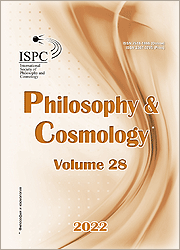Space Age Grand Narratives in Videogames
Space Age Grand Narratives in Videogames
Author(s): Olexander Horban, Mariia MaletskaSubject(s): Metaphysics, Philosophy of Science, Behaviorism, ICT Information and Communications Technologies
Published by: Международное философско-космологическое общество
Keywords: cosmos; outer space; videogame; grand narrative; space age; game mechanics; videogame space; interactivity;
Summary/Abstract: The phenomenon of outer space has become ingrained in the various levels of human culture. A feature of modern views on the phenomenon of outer space is its human-sizedness. It consists in a person’s subjective cultural experience of their relationship to outer space and allows the modeling of possible future states of outer space on the basis of comprehending the regularities of its development. With the beginning of the Space Age, the peculiar “accessibility” of space gives rise to new forms of cultural development of this phenomenon, where videogames occupy an important place since they allow a person to freely fulfill their most daring cosmic fantasies. The problem of representing outer space in videogames remains insufficiently studied. The authors’ hypothesis is that videogames reflect not only the physical characteristics of space, but also the grand narrative of space exploration and the unity of mankind in the implementation of the global task of space exploration. The authors have concluded that the grand narrative of space exploration is largely legitimized through videogames. The perception of reality, patterns of behavior, and a view on culture and science are formed through videogames. The legitimization of technical and social progress as a way to achieve significant success in space expansion is observed in most videogames where “outer space” is not only the setting, but also a part of the game mechanics. Interactivity as a central feature of the videogame phenomenon allows not only to describe and explain the idea of the physical properties of outer space or the operation of devices and mechanisms in these conditions, but also to participate directly in the development of such devices, as well as to be involved in simulators of real stay in space conditions.
Journal: Philosophy and Cosmology
- Issue Year: 28/2022
- Issue No: 28
- Page Range: 63-72
- Page Count: 10
- Language: English

